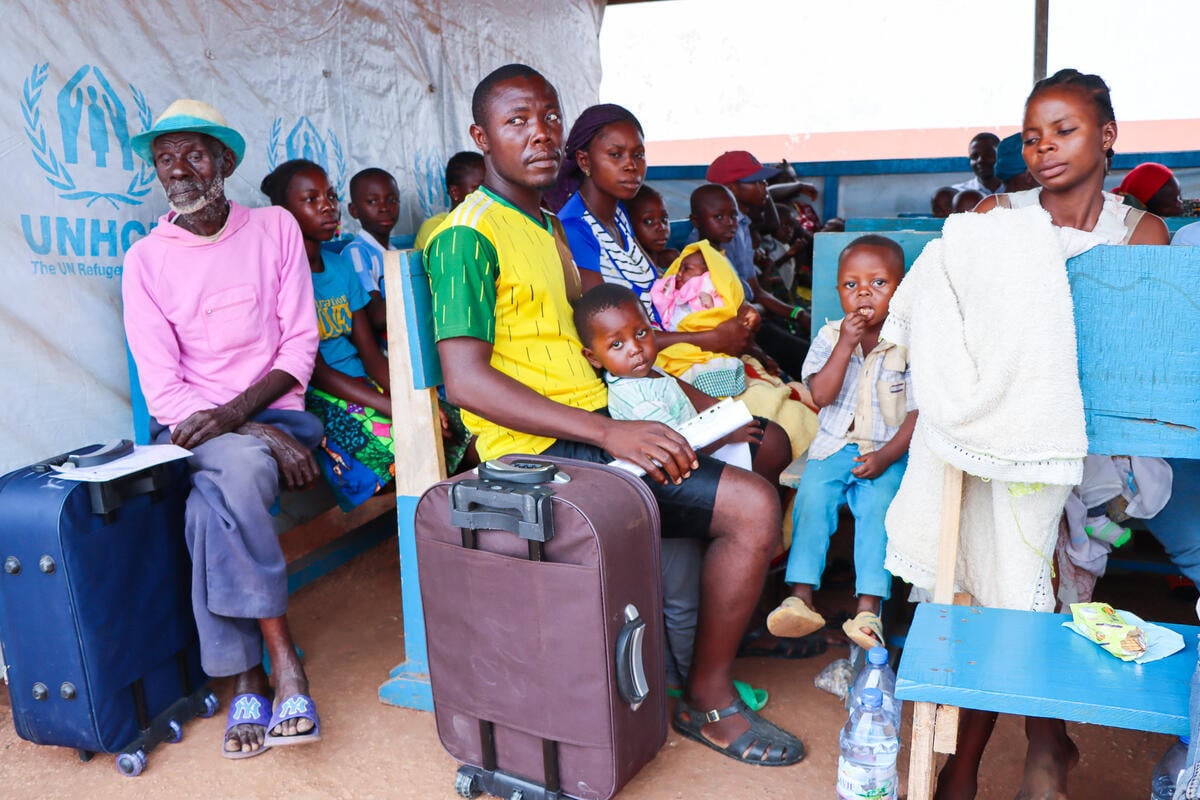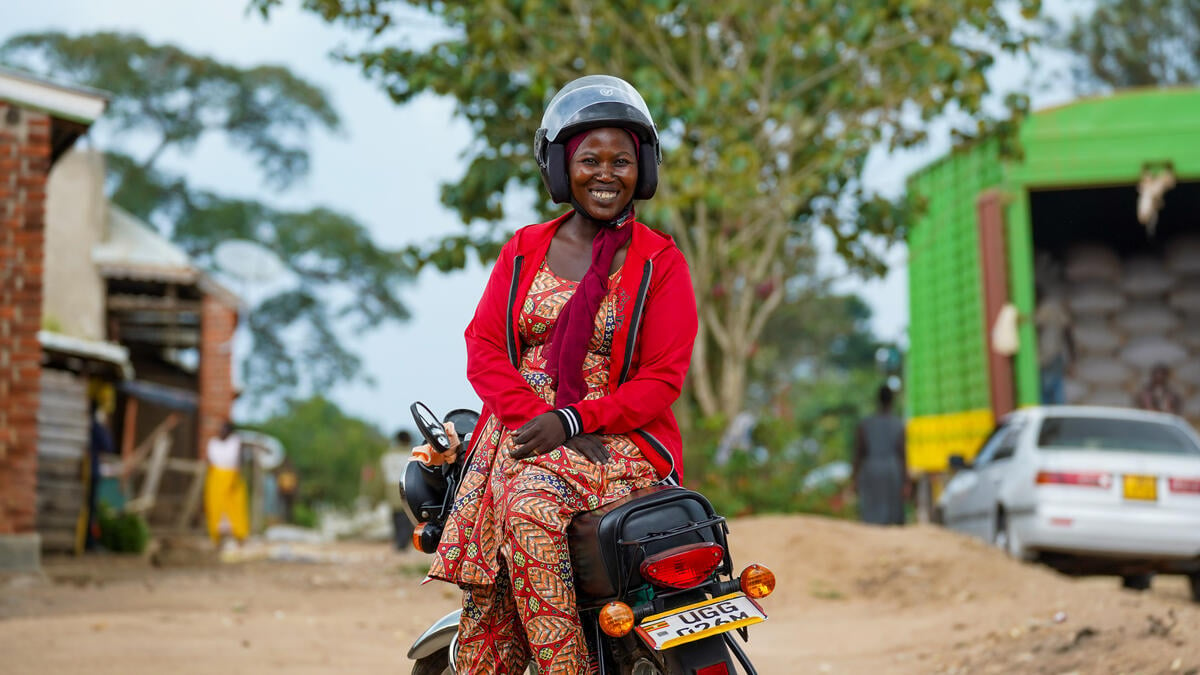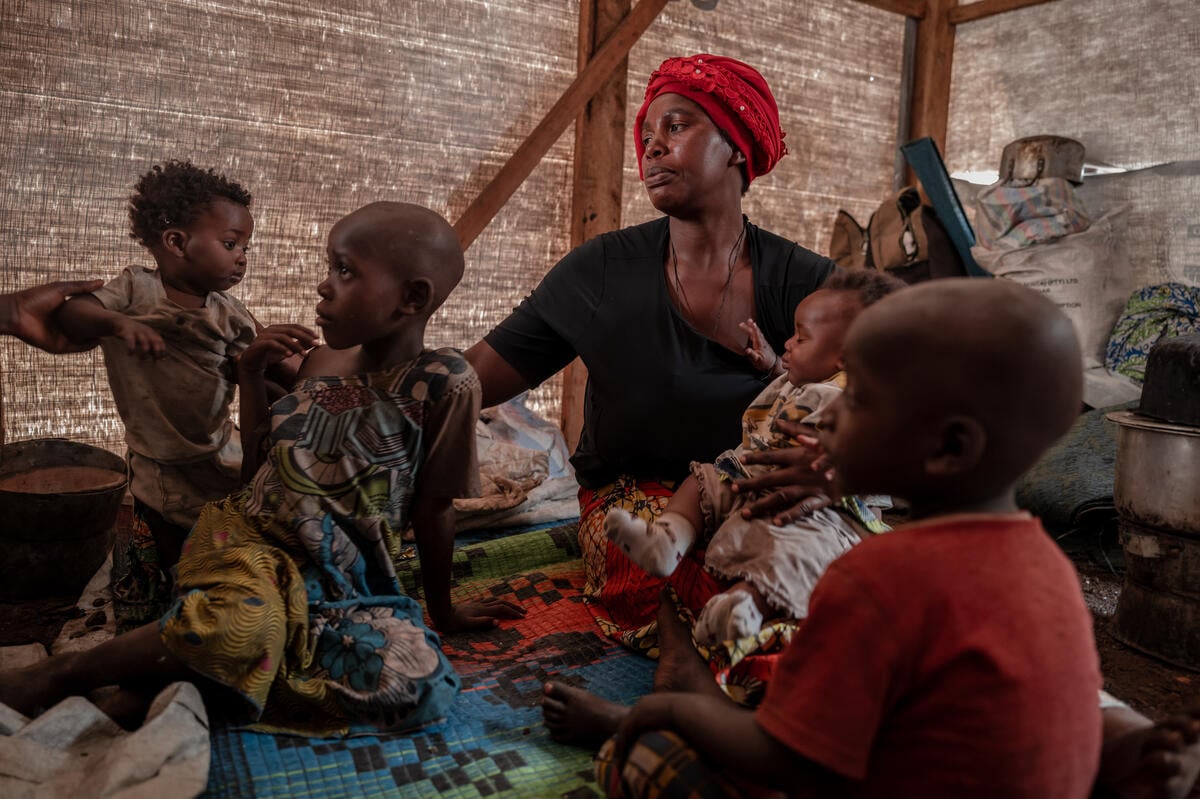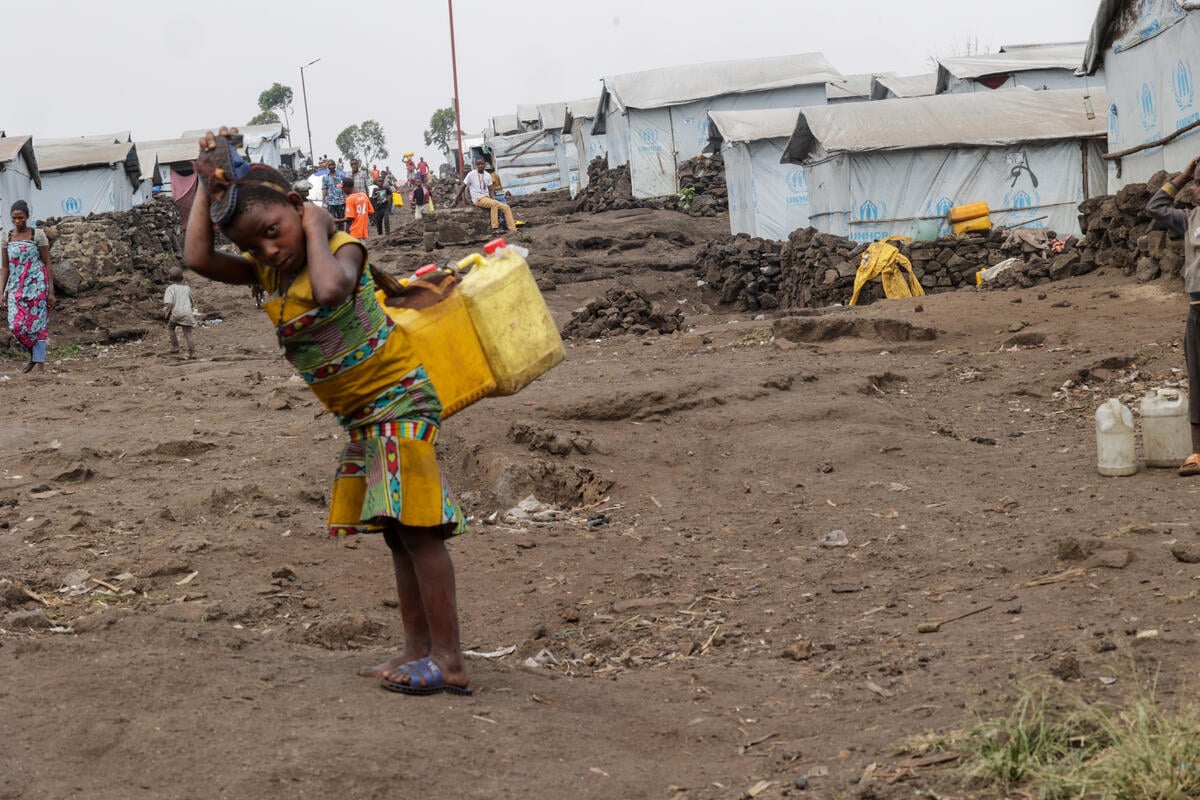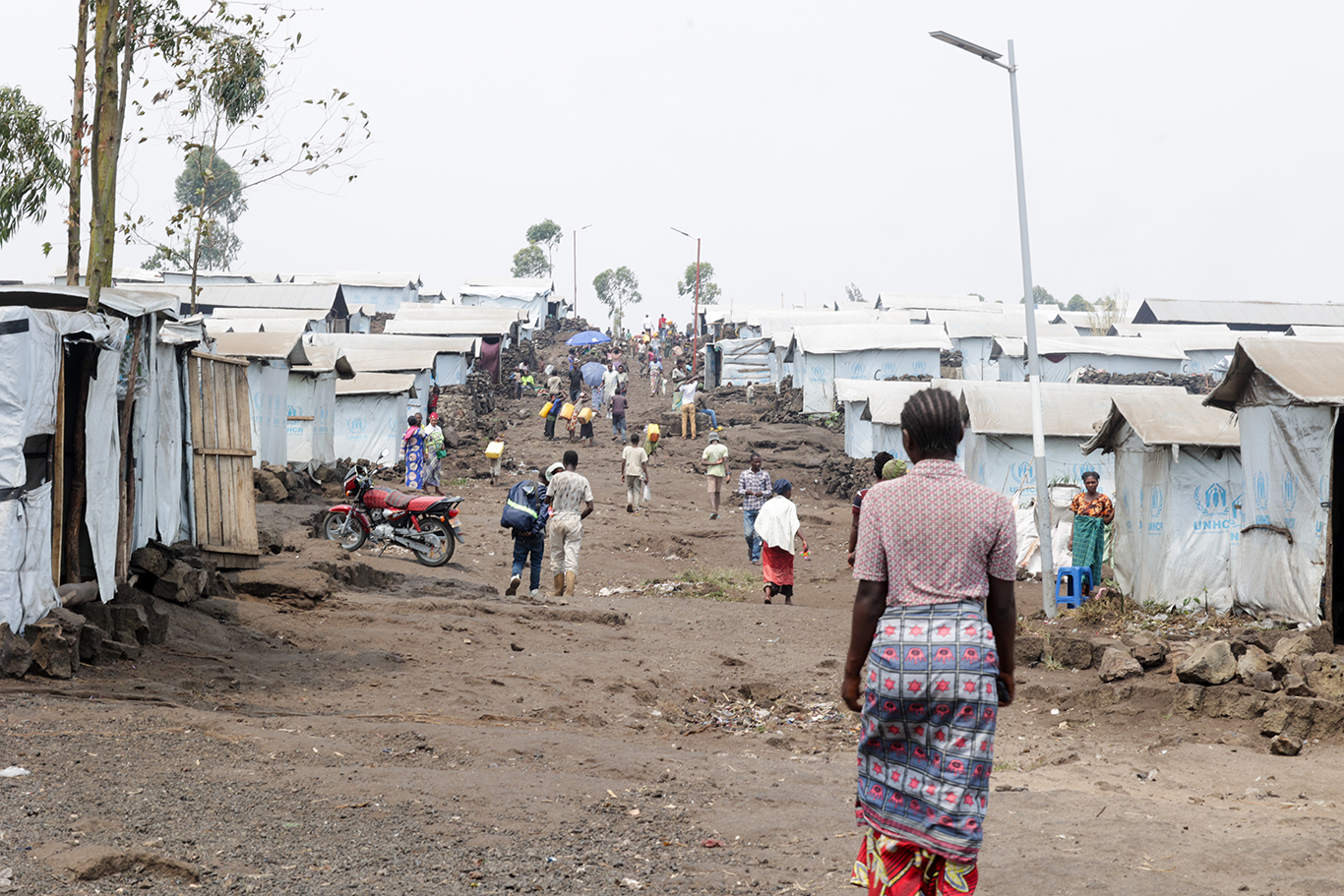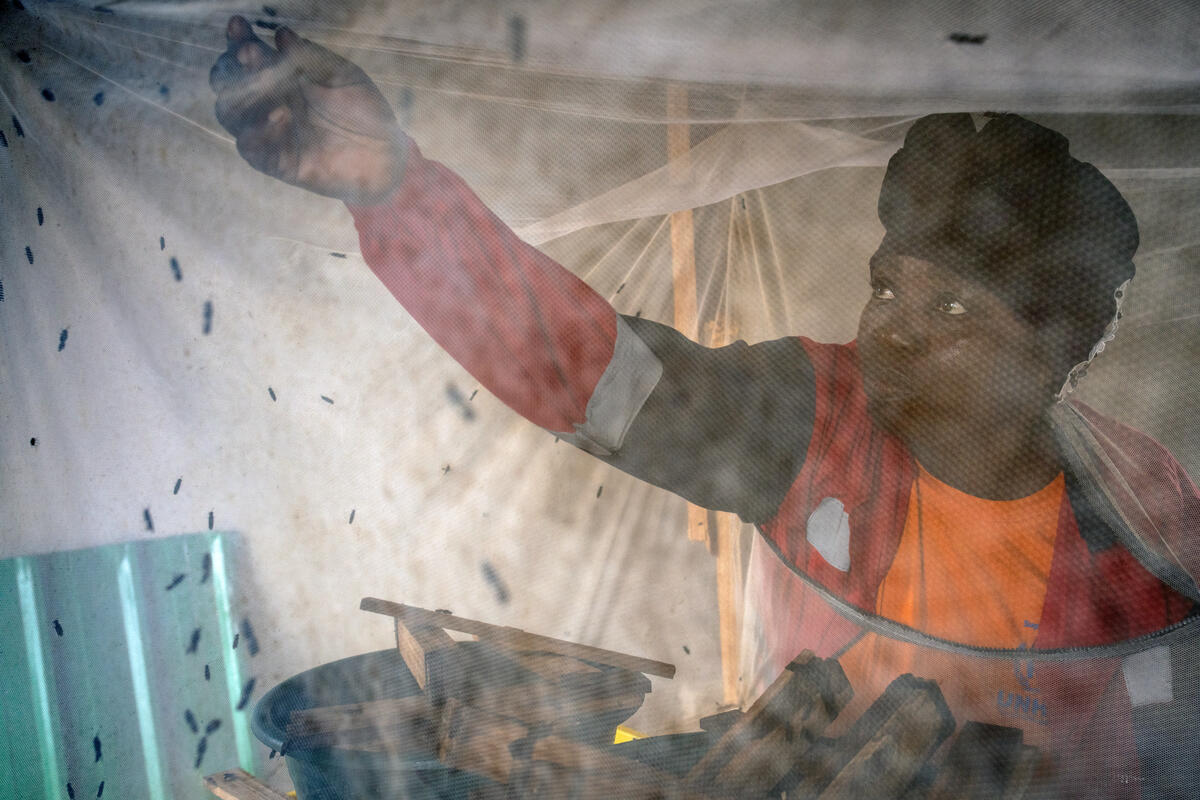Worsening humanitarian situation in the eastern DRC
Worsening humanitarian situation in the eastern DRC
According to the latest assessments, more than 50,000 people have been forced to flee their homes in north-eastern Democratic Republic of the Congo's (DRC) Ituri region due to intense fighting between the Congolese army and Uganda's rebel Lord's Resistance Army (LRA).
The fighting broke out in September and has since caused heavy loss of life, according to UNHCR staff, the newly displaced and the local authorities. The rebels have caused widespread destruction of houses and public buildings. Local authorities in the area say that the bodies of some 100 civilians were reportedly dumped in a river, while 80 children are reported missing. Parents fear their offspring have been forcefully recruited by the LRA.
At present, our staff have access only to the displaced in Dungu, a town just south of DRC's border with Sudan, and surrounding villages. People have found shelter with relatives and friends, as well as in churches and public schools. A UNHCR team on mission to Dungu reports that the internally displaced people (IDPs) are in dire need of basic humanitarian assistance. The displacement has placed a huge strain on host families.
Last week, the authorities in the provincial capital, Kisangani, have released a sum of some 7 million Congolese Francs (about US$11,000) to help feed the displaced. In response to the unfolding crisis, we are gearing up to send additional emergency staff to beef up UNHCR's presence in the Ituri region and to help meet the basic needs for shelter and water. Our teams will be also bringing in blankets, high energy biscuits and hygiene items.
The access to IDPs and distribution of aid is hampered by insecurity and lack of roads. A partial assessment of the displacement has been conducted from helicopters provided by the UN peace-keeping mission and by aid workers using trail bikes to reach IDPs in areas outside of the town of Dungu.
Meanwhile, fresh fighting in the neighbouring DRC province of North Kivu between government forces and rebels led by Laurent Nkunda has displaced 100,000 people since hostilities erupted at the end of August, according to the latest assessments. There has been widespread fighting in the Rutshuru and Masisi areas. The newly displaced civilians have fled in all directions, but most are heading towards IDP sites around the provincial capital, Goma. Our teams report that thousands of displaced are trapped in the towns further inland, not daring to move for fear of the fighting.
The fighting throughout September has forced all humanitarian agencies to withdraw their staff from the field. They are conducting snapshot assessment missions from Goma.
The fighting has also cut off the main supply route from Goma to Kitchanga and Masisi, leaving mainly the displaced at risk of a crisis.
Pending security clearance UNHCR is planning to dispatch this week to Masisi three trucks loaded with plastic sheeting, more than 14,000 sleeping mats, 15,700 blankets and 8,500 jerry cans. Another truck is scheduled to leave for Kitchanga with 1,000 mosquito nets and 1,000 bars of soap.
There are 16 UNHCR-assisted sites in North Kivu sheltering some 100,000 people. Tens of thousands of civilians have found shelter in more than 40 makeshift sites across the province.
Fighting in North Kivu intensified at the end of 2006. By January 2008, it had brought the total of internally displaced in North Kivu to more than 800,000 people. Also in January 2008, the government signed a peace agreement with all parties to the conflict. The cease-fire has been violated several times since. Aid agencies estimate the total number of IDPs in the province as close to 1 million.

